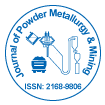Наша группа организует более 3000 глобальных конференций Ежегодные мероприятия в США, Европе и США. Азия при поддержке еще 1000 научных обществ и публикует более 700 Открытого доступа Журналы, в которых представлены более 50 000 выдающихся деятелей, авторитетных учёных, входящих в редколлегии.
Журналы открытого доступа набирают больше читателей и цитируемости
700 журналов и 15 000 000 читателей Каждый журнал получает более 25 000 читателей
Индексировано в
- Индекс источника CAS (CASSI)
- Индекс Коперника
- Google Scholar
- Открыть J-ворота
- Генамика ЖурналSeek
- РефСик
- Университет Хамдарда
- ЭБСКО, Аризона
- OCLC- WorldCat
- Публикации
- Евро Паб
Полезные ссылки
Журналы открытого доступа
Поделиться этой страницей
Абстрактный
A Qualitative Analysis of the Recycling Procedures for Lithium-ion Batteries
Valnzuela J Elgeta
Due to the widespread use of e-mobility, a lot of lithium ion batteries (LIB) end up in the landfill. Strategies for recycling and disposal must be developed and implemented immediately. End of Life (EoL) LIBs urgently require environmentally friendly, safe, and cost-effective disposal options. This study evaluated the recycling and reclamation procedures of 44 commercial recyclers. The "Strategic Materials Weighting And Value Evaluation" (SWAVE) qualitative assessment matrix is proposed and used to compare the strategic importance and value of various EoL LIB materials. By comparing the final form or composition of recycled material following the recycling processes, industrial processes, and industry type (primary sector, manufacturer, or recycler), sustainability and quality are evaluated. SWAVE is applied to each organization, delivering a score out of 20, with a bigger number showing that more materials can be reused. Six well-known recycling companies' separation procedures and resources are further discussed. The majority of recyclers focus on high-value metal extraction rather than closed-loop recycling of the metals or component materials, highlighting an environmental and technological gap. These recyclers use one or more mechanical treatments, pyrometallurgy, or hydrometallurgy. Reuse and repurposing of materials (closedloop recycling) should be considered for further development rather than merely recycling or recovering metals in order to enhance the current circular economy of batteries. It is necessary to conduct additional research on the environmental consequences of recycling or recovering one material over another.
Журналы по темам
- Биохимия
- Ветеринары
- Генетика и молекулярная биология
- Геология и науки о Земле
- Еда и питание
- Иммунология и микробиология
- Инженерное дело
- Клинические науки
- Материаловедение
- медицинские науки
- Науки об окружающей среде
- Общая наука
- Сельское хозяйство и аквакультура
- Социальные и политические науки
- Уход и здравоохранение
- Фармацевтические науки
- Физика
- Химия

 English
English  Spanish
Spanish  Chinese
Chinese  German
German  French
French  Japanese
Japanese  Portuguese
Portuguese  Hindi
Hindi